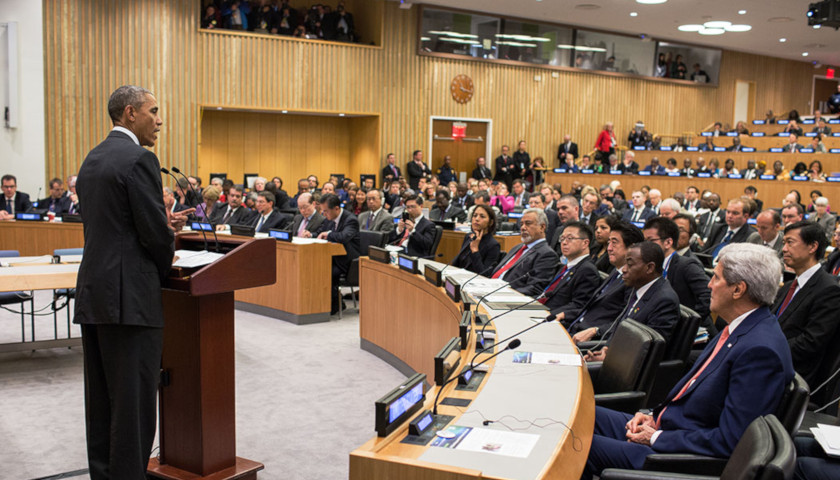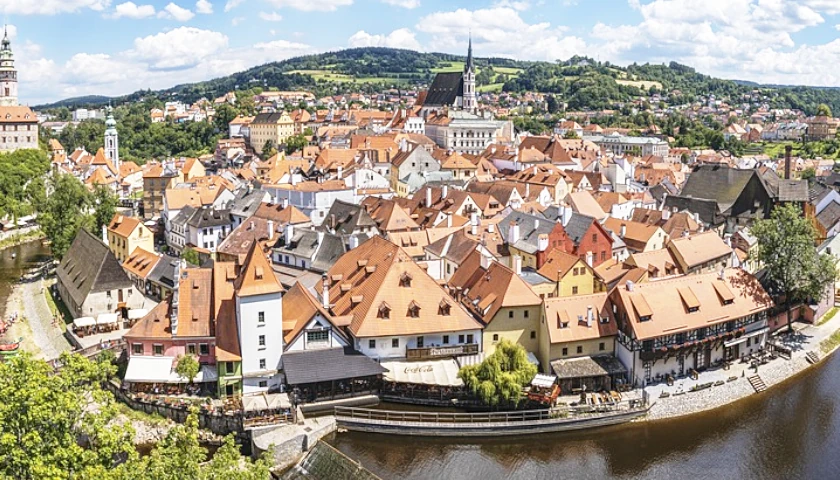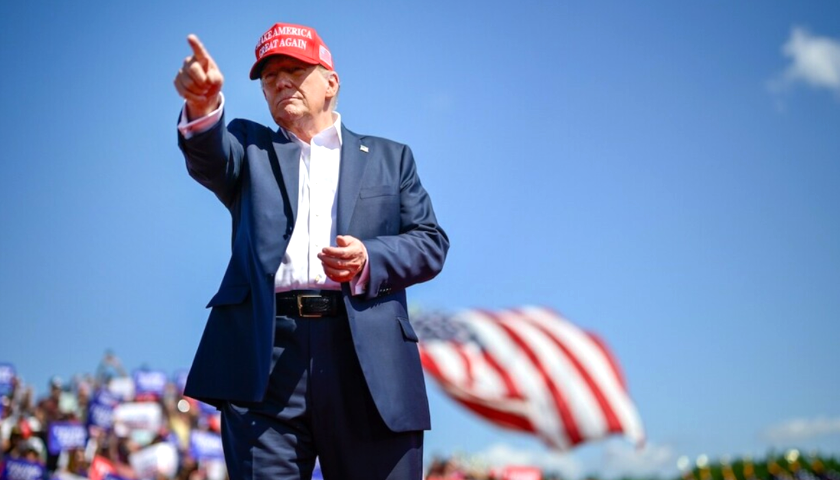by Edward Ring
On November 30, 1999, the largely theoretical question of globalism exploded into reality with the spectacle of 50,000 demonstrators shutting down a major meeting of the World Trade Organization in Seattle. News coverage of this unexpected sensation, with expertly rendered video montages of police phalanxes, black-clad anarchists, smashed glass, snarled traffic, accompanied by animated commentary, provided American television media with a daily potboiler for a few days. Then globalism was again forgotten.
In 1999, America’s progressive Left viewed globalism as the root cause of poverty, environmental destruction, and the disintegration of ancient cultures. They perceived globalism as the movement by multinational corporations, and their client organizations, the supranational World Trade Organization, the International Monetary Fund and the World Bank, to control the development and growth of supposedly sovereign nations.
Instead of allowing developing countries the opportunity to grow diverse, self-sufficient economies, in the hallowed name of “free trade,” they were force-fed loans that required them to spend on mega-projects, cash crops, mines, dams, low-wage manufacturing plants—all built by multinationals that destroy the economic independence of the countries they enter.
In 1999, Americans who bought running shoes produced by slave labor overseas, ate hamburgers made from cattle that grazed on the lands of a former rainforest, or drank coffee grown in pesticide-drenched monocrops where cloud forest once stood, could only with effort conceive of such remote despoliation. What was obvious was the cheap footwear, fast food, and excellent coffee.
Globalization, to the extent Americans thought about it at all, was perceived only as providing material benefit. The catastrophes wreaked elsewhere in the world were abstractions. At the time, one of the core missions of the populist progressive Left was to expose globalization, and stop it in its tracks by changing American public opinion.
That was then. Today the progressive Left has become the champion of globalization, joining, perhaps unwittingly, America’s establishment uniparty in supporting its updated agenda: open borders, free trade, and “climate action.”
While the progressives may disagree with the establishment on questions of degree—how much redistribution of wealth, how many migrants, how aggressively to implement climate action—they’re in remarkable agreement on the premises.
Today the foes of globalization are on the Right. The same black-clad anarchists who used to smash glass to disrupt the meetings of the WTO, IMF, and World Bank, now take to the streets to silence the anti-globalist Right.
What happened?
Probably the most significant change was the growing realization that economic globalization was not simply a matter of developed nations exploiting developing nations. The reality is far more complex.
In general, free trade is supposed to optimize the rate of global economic growth, but the primary beneficiaries are the less developed nations. Exporting jobs to less developed nations with cheaper labor may have been characterized as exploitation of those workers, but the big surprise was that most of them didn’t see it that way. Just compare the rates of economic growth in developing nations between 2000 and today—China, India, Vietnam, Malaysia, Indonesia—to the growth rates over the same period in developed nations including the United States, Japan, and members of the European Union. But for a while, the topic of globalization faded from the public mind.
The events of September 11, 2001 and the War on Terror that followed took center stage, pushing globalization to the sidelines. Then, right about the time the public had begun to get used to the new era of endless wars, came the great recession.
Until the great recession, the downside of globalization hadn’t really struck Americans. Sure, at the same time as jobs were being exported to low wage nations, citizens of the high wage nations were losing those jobs. If you don’t have a job, it doesn’t matter if the giant flat screen television made in China is available at Walmart for $600 or $1,200. But for years, millions of Americans compensated for lower income by borrowing money on their bubblized home equity. That came to a screeching halt in 2009.
Where was the progressive Left during the great recession?
Yes, there was Occupy Wall Street and a succession of encampments around the country to protest the injustice of a financial industry that escaped almost any consequence for derailing the economy. But to a large degree, the Obama presidency obscured the transition of the Left from foes of globalization to proponents of globalization.
Barack Obama’s charisma, his status as the first African American president, and his ability to pacify his leftist critics with big legislative initiatives such as Obamacare, somehow either overshadowed, justified, legitimized, or overcame objections to his other policies, which were to be just as globalist as those of his predecessor. It wasn’t until Trump came along in 2016 that the debate over globalization returned to center stage. But this time it was a very different debate.
Donald Trump disrupted the debate over globalization by focusing on the impact it was having on Americans. He challenged what had become truisms for the establishment—trade deficits don’t matter or can actually be beneficial, free trade is always good, mass immigration helps more than it harms.
What the establishment had ignored was that the benefits of trade deficits are financial bubbles (as American asset prices are bid up by foreign investors) that only enrich wealthy speculators. Free trade isn’t free when other nations cheat. Mass immigration only benefits businesses who want cheaper labor. Meanwhile, homes became unaffordable debt traps, good manufacturing jobs migrated overseas, and immigrants took away jobs from America’s most vulnerable workers.
Trump also clarified the debate over globalization by forcing the progressive Left to reveal its true colors. It became clear that the Left’s only concern was how globalization affected the developing world, and exposed their indifference, even hostility, toward the workers in their own nations.
You can make a moral case that globalization should harm the workers of the developed nations more than it harms the workers of developing nations. You can turn that unavoidable truth into an altruistic virtue, although one that is rather hard to defend in the nations that are being harmed.
You can also embrace globalization on those terms because it does the bidding of the wealthy elites and multinational corporations who are most enriched by “free” trade and open borders.
America’s progressive left did both. They’ve disguised their desire to see the traditional American worker disenfranchised in their own nation with attacks on “white nationalism.” They’ve come to accept the premises of free trade economists that they’d once despised, with the caveat that climate activism and all that it entails—namely, the mass redistribution of wealth—will mitigate the impacts of globalism on developing nations which had once bothered them so much.
The fatal flaw in the Left’s new embrace of globalization, however, is that socialist redistribution has never made societies better off, and achieving 100 percent renewable energy would be environmentally disastrous to say nothing of economically impossible.
These unresolvable conflicts doom the undeclared alliance between progressive leftists and economic globalists. The result? A steady stream of defections by progressive leftists into alternative platforms, many of them likely to embrace the various forms of nationalism they now claim to deplore. Just watch.
– – –
Edward Ring is a Senior Fellow of the Center for American Greatness. He is a co-founder of the California Policy Center, a free-market think tank based in Southern California, where he served as their first president. He is a prolific writer on the topics of political reform and sustainable economic development. Ring, a fifth-generation Californian, has an undergraduate degree in political science from UC Davis, and an MBA in finance from the University of Southern California.





